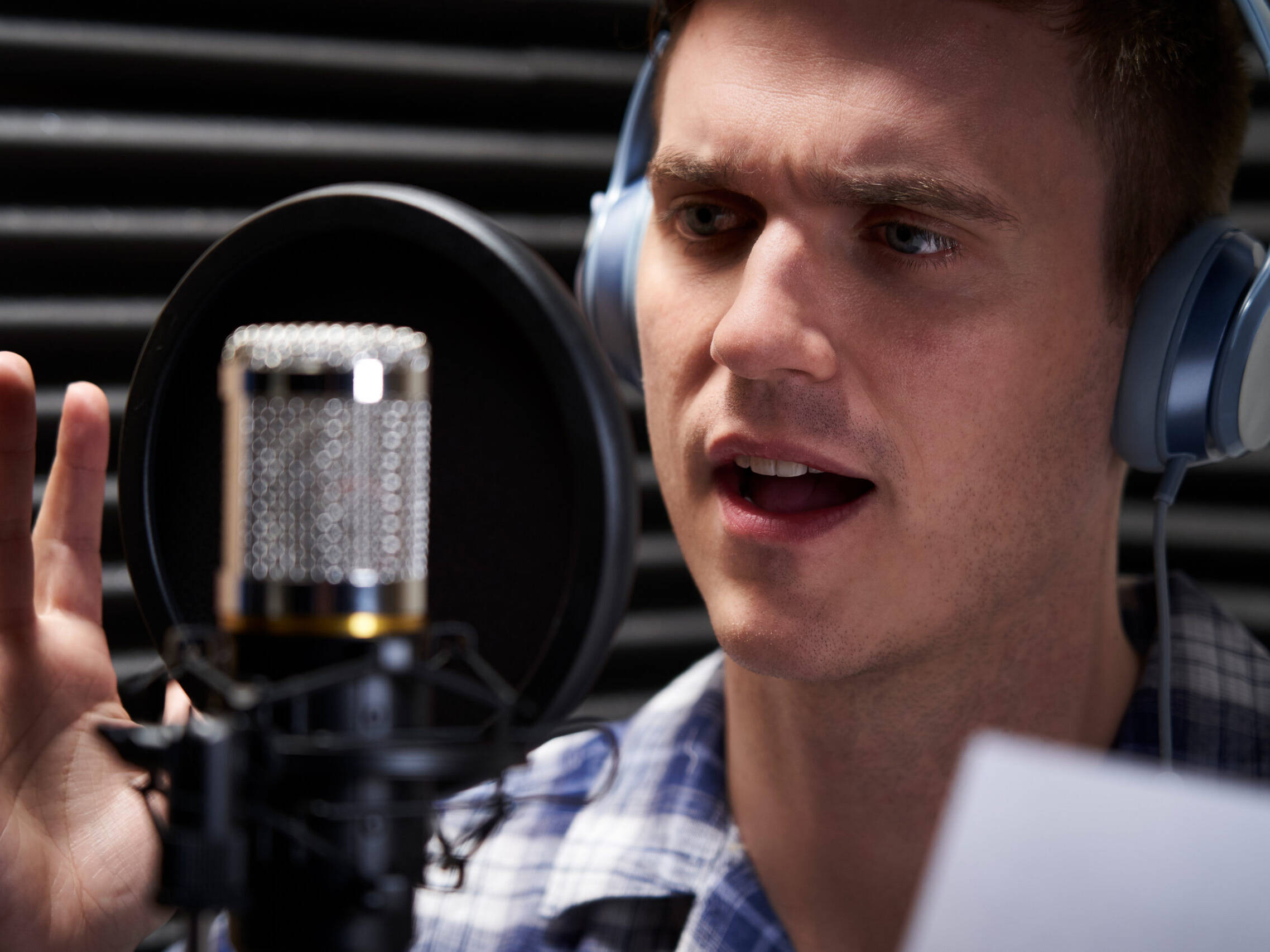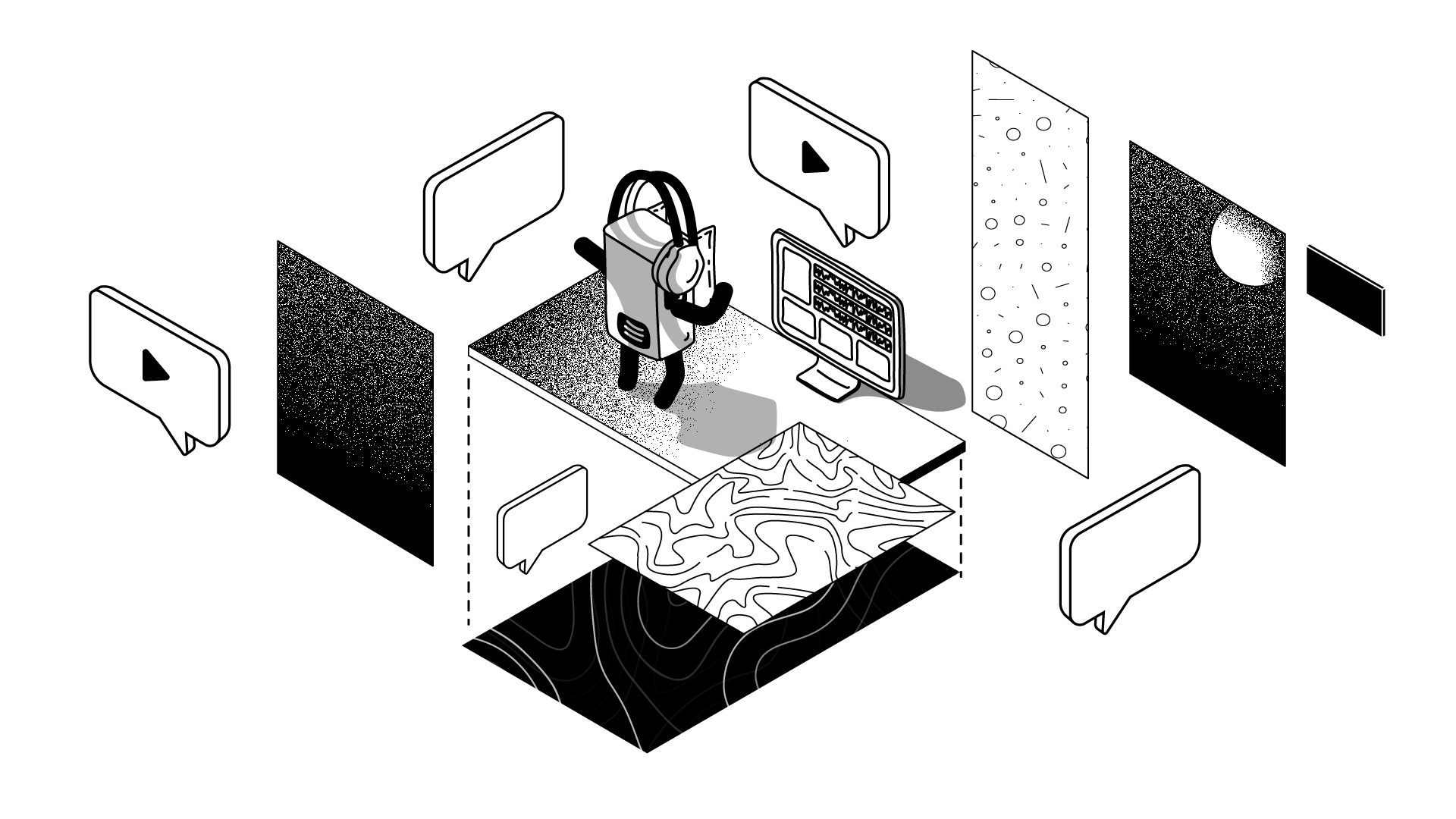How to become a narrator? It’s a vital skill because documentary narrators must entertain audiences, involve them in the story, teach them something extraordinary, and make them believe in what they see. However, the documentary voice-over genre has skyrocketed recently because of streaming platforms like Netflix, Hulu, Disney, and Amazon Prime. So, there’s never been a greater demand for skilled voice over narration to bring factual stories to life. Learn the ins and outs of how to become a narrator with these tips, skills, and resources.
What is a documentary narrator?
A documentary narrator is a voice actor who guides the audience through the storyline of a documentary film or series through a voice over narration that provides commentary, insights, and personal perspectives from the characters. A documentary narrator uses a compelling, captivating vocal style and tone to enhance the documentary’s feel and impact, making complex ideas more accessible and compelling to viewers. They use their voice to connect emotionally with the audience, educating and inspiring them.
How to become a narrator for documentaries
- Education: You don’t need a specific degree to become a narrator. However, studies in English, journalism, communications, and theater can give you a strong foundation in language, storytelling, and performance art.
- Experience: Improved skills come with experience. You can volunteer for local projects like community radio programs, audiobook recordings, or podcasting for more practice. When learning how to become a narrator, every performance counts.
- Samples: A diverse portfolio of different subjects and styles shows your voice over narration versatility. If you don’t have work samples, make your own with excerpts from books, articles, or popular scripts using different vocal tones and techniques. The Voice Reel Script Library has a variety of scripts you can use in your voice over samples.
- Audition: While not every audition results in a job, it helps to hone your skills and diversify your experience. On Voice123, you can audition for various projects and add them to your profile as voice over samples (if the client allows). This will help you expand your portfolio and voice acting experience.
Start voice acting today with a special discount!
*For first-time paying members
Key skills for documentary voice overs
- Clarity: This vocal quality makes voice over narration more understandable to audiences, regardless of a subject’s complexity. Practicing diction, vocal exercises, and enunciation are valuable steps to improve your vocal clarity during a read.
- Tone: Documentary narrators adjust their tone to match the director’s requirements. Authoritative for historicals or soothing for nature scenes. Listen to and mimic other narrators’ vocal tones to understand different vocal styles better.
- Pacing: It holds the audience’s attention, so information is absorbed and adjusted depending on a scene’s emotional weight. Practice reading voice over narration scripts at different speeds, trying to self-adjust based on the subject and audience.
- Emotion: This is connected to empathy, making the documentary voice over sound authentic. Try to put yourself in the story; it’ll give you a more realistic feel for the information that comes across to audiences in your voice over narration.
Tips for recording high-quality documentary narrations
- Microphones: Voice123’s A-Z microphone guide has helpful tips on affordable, high-quality mics. Options like dynamic, condenser, ribbon, and USB are sensitive to sound nuances, which helps them deliver documentary narration with clarity and depth.
- Soundproofing: Your home studio can be anything from a room to a DIY closet. As long as it’s sound-treated to minimize background noise and echoes. Acoustic panels or even thick blankets and curtains contribute to clean sound in your documentary narration.
- Recording software: Software like Audacity or Adobe Audition offers a range of features to record, edit, and process documentary voice over files. There is noise reduction and restoration, effects and filters, and voice morphing and manipulation.
- Pre-recording prep: Documentary narrators must read the script and research the subject’s background. This ensures familiarity with a natural delivery and nuanced interpretation. You can also pivot quickly to accommodate the director’s requests.
- Practice aloud: Practicing your documentary voice over script aloud helps you focus on specific areas of pronunciation, pacing, and inflection. Use this opportunity to experiment with breath control and different vocal approaches, like a deeper voice.
- Post-recording editing: Editing unnecessary pauses, breathing sounds, or reading errors gives you a clean, polished final product. Apply subtle equalization (EQ) and compression so your documentary voice over is consistent in volume and tone.
Resources to help you master documentary voice overs
- Online Courses: Websites like Udemy and Coursera offer documentary voice over courses that you can learn at your own pace. They teach everything from basics to advanced techniques.
- Workshops and Seminars: Industry workshops provide hands-on experience. The Voice Actors Studio hosts workshops about everything from villain voices to documentary narration.
- Books: VoiceOver Voice Actor and The Art of Voice Acting are popular reads for documentary voice over that cover the technicalities, nuances, and business aspects of voice acting.
- Podcasts: Shows like Atlanta Studio, Mike Lenz, and Voice Over Gurus offer insights into documentary voice over, interviews from veterans who share their experiences, and voice acting tips for success.
- Communities and Networks: Voice actor groups on Reddit, Facebook, and other social media can offer support, advice, and collab opportunities on documentary voice over.
Conclusion
From understanding the nuances of voice modulation to mastering the art of storytelling, learning how to become a narrator takes dedication, practice, and a passion for voice acting. Browse our helpful voice over guide for tips, steps, and techniques to kickstart your documentary narration career. Start your voice over narration journey with Voice123 today, and who knows – your voice could be narrating the next great story.
FAQ
According to ZipRecruiter, in 2024, narrators earn around $80,759 a year. That’s $38.83 an hour, $1,553 a week, and $6,729 a month, with the average yearly range between $55,000 and $102,500.
Start by improving your reading and voice acting skills, create a quality demo reel showing off your voice range, and network with authors and audiobook producers. You can also join a platform like Voice123 to find voice over jobs.
It’s a field that anyone can pursue. But success requires good vocal and acting skills, reading comprehension, the ability to interpret a text’s nuances, and stamina for long recording sessions.






















